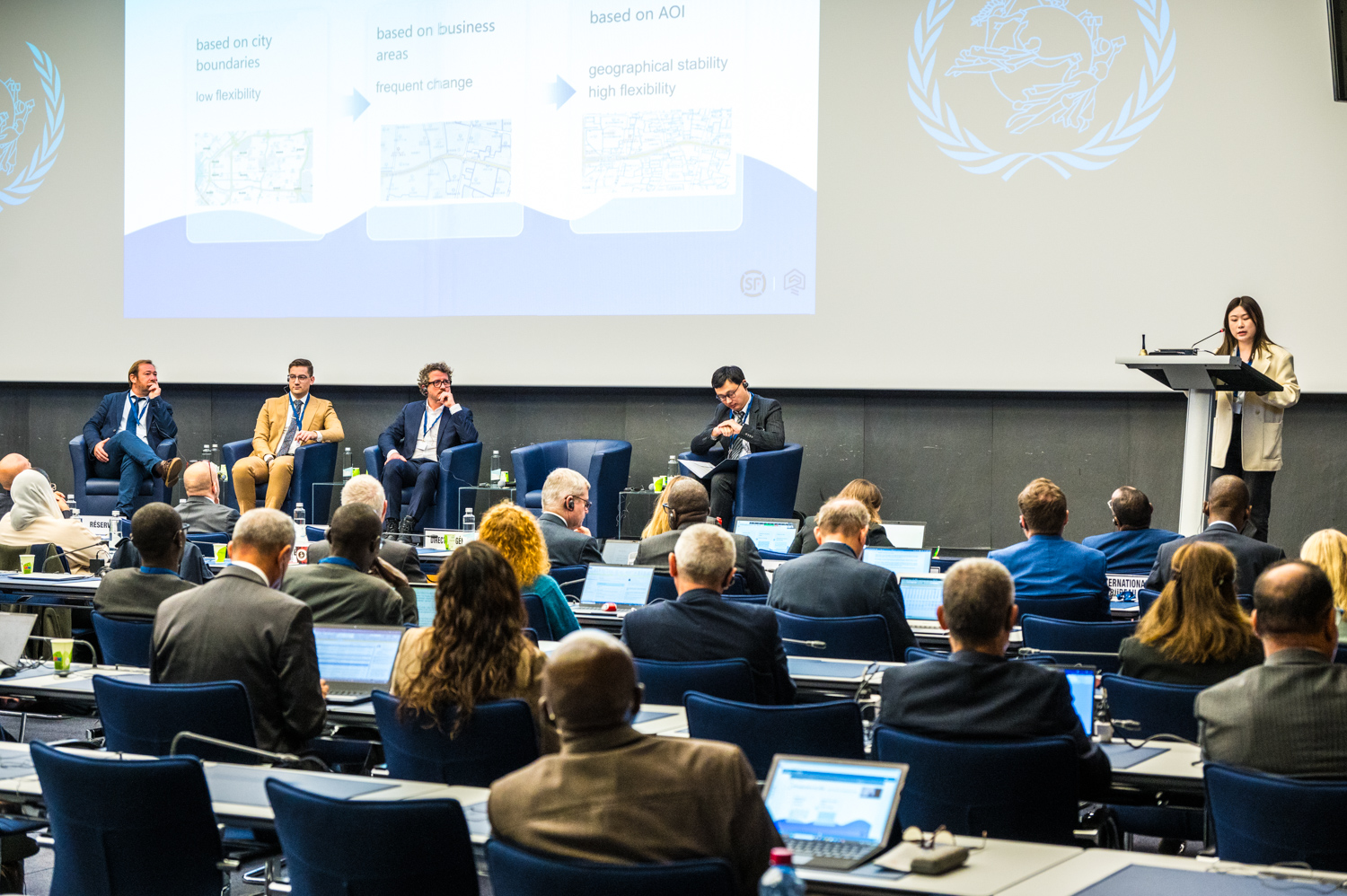During its autumn Postal Operations Council session, the UPU organized the first Addressing Forum in the Abidjan Postal Cycle (2021-2025) bringing together multi-sectoral expert speakers and attracting a global audience of more than 200 participants. The Forum showcased the importance of integrating geospatial data with pioneering geographic information system (GIS) technologies in managing addresses to maximize their data quality.
A new era of addressing with e-commerce and digitalization
Postal Operations Council (POC) Chair Jean-Paul Forceville, representing France, and UPU Director General Masahiko Metoki opened the Forum, emphasizing the need for reliable addresses to support the latest developments in e-commerce and digitalization. The POC Chair added that reliable addresses were key to ensuring a high quality of service and the post's relevance as an attractive partner in the supply chain, particularly amidst increased engagement with the wider postal sector.
"The time has come to deepen this trend and integrate cutting-edge technologies to generate accurate address data information that is internationally available for use by our customers," said UPU Director General Masahiko Metoki.
Leaving no one behind
Ensuring equal and equitable access to essential and quality public health services such as universal health coverage requires creating a master list of data, disaggregated to the lowest sub-locality level of quality and accessibility. This is envisaged in the Sustainable Development Goal (SDG) 3, which aims to ensure healthy lives and promote well-being for all at all ages. This is not often the reality in low and middle-income countries, however, several countries in Southeast Asia are starting to collect geographic coordinates to practice public health programs such as the Mahidol Oxford Tropical Medicine Research Unit in Bangkok.
Keynote speaker Richard Maude, a Professor of Tropical Medicine at the Centre for Tropical Medicine and Global Health at the University of Oxford, highlighted that close collaboration between the health sector and postal authorities could help distribute new health services and treatments even in remote areas. By doing so, he added, both sectors "could leverage their contribution to achieving SDG 3 on the grounds and improving the national addressing system."
Leveraging postal infrastructure
Opening up new services and multiplying the possibilities of postal data lies in establishing better quality data within the existing flow of electronic advanced data. "Our address data is our DNA and by facilitating GIS integration enables a symbiotic relationship between structured datasets that have real value," stated David Pilkington, who represents the United Kingdom as Chair of the Customs Group and gave a keynote speech.
He added there was a need to change how the sector perceives the importance of digging into postal code data to discover its benefits and how the UPU, with its addressing database, can play a central role in data-sharing under a globally standardized system.
Standardization and digitalization
Experts representing Egypt Post, Development & Research Center of the State Post Bureau of China, Geomain, and MapCode and Tomtom demonstrated successful case studies of applying geographic coordinates to postal addresses and standardizing their digitalization. Country-specific research such as the Universal Delivery Address Code in China could provide a basis to promote the development of a standardized UPU geocoding framework scheme for integrating GIS.
Panel 2 welcomed experts from Edenmap, SFMAP Technology, Deloitte Canada and Geoptis France. The panelists stressed that addresses could be contextualized with territorial dynamics to provide geo-localized data that could assist in pollution reduction by optimizing postal delivery routes and provide an attractive avenue for marketers. In such a way, the postal code data can become a powerful tool for use by a wide group of stakeholders.
Addressing reform
A digital vision for postal codes was further supported by use-cases where the most advanced GIS technology was combined with artificial intelligence and deep learning, such as GeoAI, Generative AI and the Short Address initiative.
First on the panel was UPU Economist, José Anson, who focused on the “need to create the next-generation of postal codes … encompassing convenience, cost-efficiency, carbon-offsetting and better engagement with customers (4Cs)." Second, Lorenze Dolezalek of Boston Consulting Group, highlighted the need for collaboration to train and upskill people so they can actually practice geographic data.
The UPU Deputy Director General Marjan Osvald closed the Forum emphasizing the sector’s need to "expand the use of geocoded data to everyone, everywhere. And that postal operators are uniquely placed to capture and maintain unique data assets that are not available from any providers in the marketplace."
